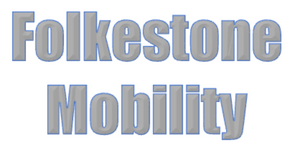Introduction
Folkestone, a picturesque coastal town in Kent, England, has long been cherished for its charm and cultural richness. However, when it comes to ensuring equal opportunities for people with disabilities, many destinations often fall short. In this blog post, we will delve into the state of disability access in Folkestone, Kent, and explore the efforts made to promote inclusivity within the community. By shedding light on both the challenges and progress, we aim to encourage further awareness and actions to enhance accessibility for all.
Current State of Disability Access
While Folkestone boasts a wide array of attractions, businesses, and public spaces, disability access remains a vital concern. People with disabilities often face obstacles that hinder their ability to fully participate in everyday life. Common barriers include:
-
Lack of Accessible Transportation: Public transportation is a lifeline for many individuals, but outdated infrastructure and limited accessibility options can make it challenging for people with mobility issues to move around freely.
-
Inaccessible Public Buildings: Despite the progress in modern architecture, some public buildings, including museums, libraries, and government offices, still lack proper facilities and accommodations for those with disabilities.
-
Uneven Pavements and Sidewalks: Inadequate maintenance of pedestrian pathways can make navigation difficult for individuals with mobility aids like wheelchairs or canes.
-
Limited Access to Beaches: Folkestone's beautiful coastline is a major attraction, but the lack of accessible pathways and facilities on the beaches can deter people with disabilities from fully enjoying this natural treasure.
-
Awareness and Attitudinal Barriers: Social stigma and misconceptions surrounding disabilities can create unwelcoming environments and hinder the community's understanding and support.
Initiatives Towards Inclusivity
Despite these challenges, Folkestone is making notable efforts to promote inclusivity and enhance disability access:
-
Accessible Infrastructure: The local government has been working on upgrading infrastructure to improve accessibility. This includes installing ramps, elevators, and disabled-friendly facilities in public buildings.
-
Accessible Transportation: Several taxi services now offer accessible vehicles to cater to people with mobility challenges. Additionally, bus companies have been working towards providing low-floor buses with ramps.
-
Beach Wheelchairs: Some beachfront areas in Folkestone now offer beach wheelchairs, allowing people with mobility limitations to access and enjoy the coastline comfortably.
-
Disability Awareness Campaigns: Community organizations and local authorities have launched campaigns to raise awareness about disability issues, aiming to foster empathy and understanding within the community.
-
Accessible Events and Activities: Many events and cultural activities now prioritize accessibility, providing accommodations such as sign language interpreters, captioning, and accessible seating.
The Road Ahead
While commendable progress has been made, there is still much to do to achieve full disability inclusivity in Folkestone. Here are some steps that can be taken:
-
Collaborative Approach: Encourage collaboration between the local government, businesses, community organizations, and people with disabilities to create more effective and sustainable solutions.
-
Accessibility Audits: Conduct regular accessibility audits of public spaces and businesses to identify and address areas that need improvement.
-
Disability Training: Provide disability awareness and sensitivity training for business owners, employees, and service providers to ensure a more inclusive and welcoming environment.
-
Public Engagement: Involve people with disabilities in decision-making processes to ensure their needs and perspectives are considered when planning and implementing accessibility initiatives.
-
Promote Universal Design: Emphasize the importance of universal design principles, which benefit everyone, regardless of ability, by making spaces and services more usable and convenient for all.
Conclusion
Folkestone, Kent, has undoubtedly taken positive steps towards promoting disability access and inclusivity. However, to truly embrace the diversity of its residents and visitors, ongoing efforts are required to address the remaining challenges and create a truly accessible and inclusive community. By working together and keeping the conversation alive, Folkestone can become an exemplary model for other towns, proving that disability access is not just a legal requirement but a vital aspect of creating a compassionate and forward-thinking society.

